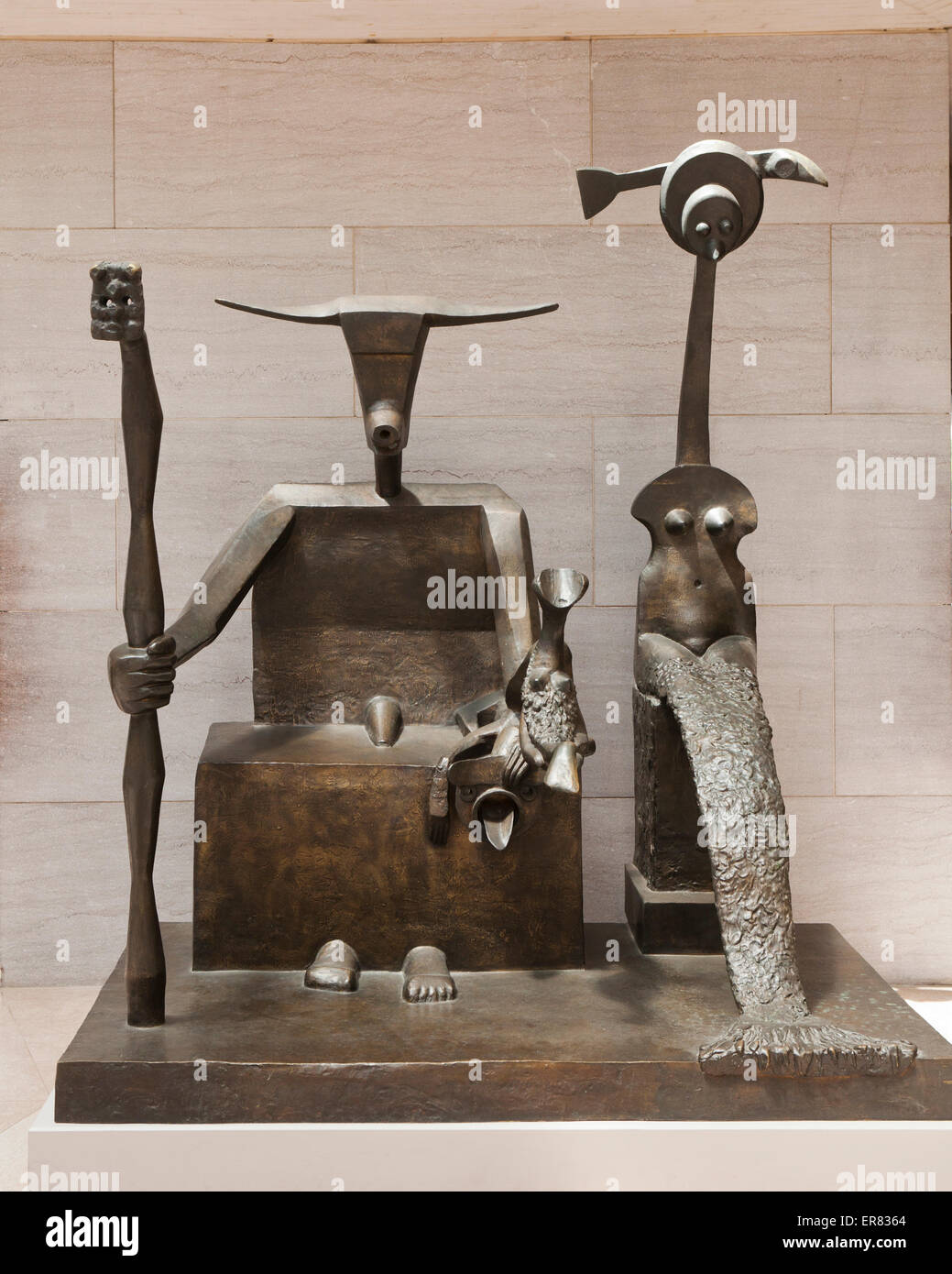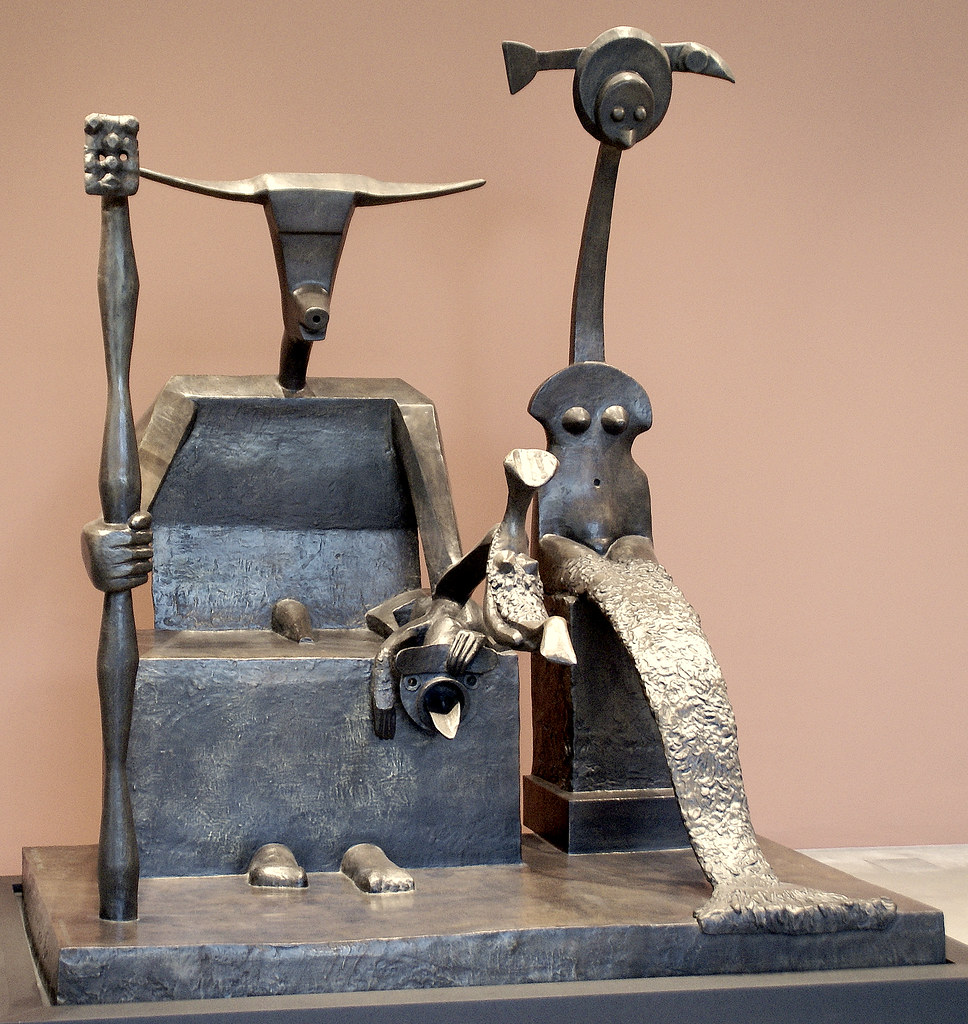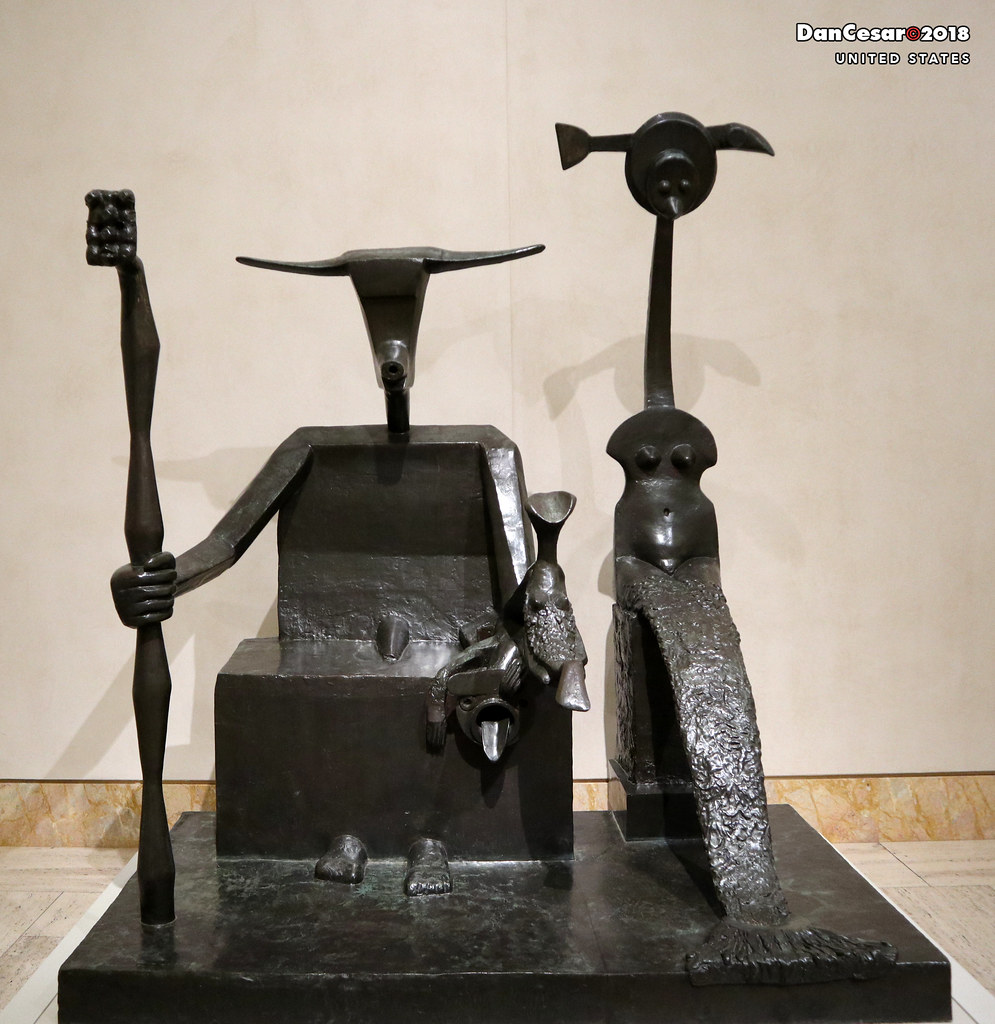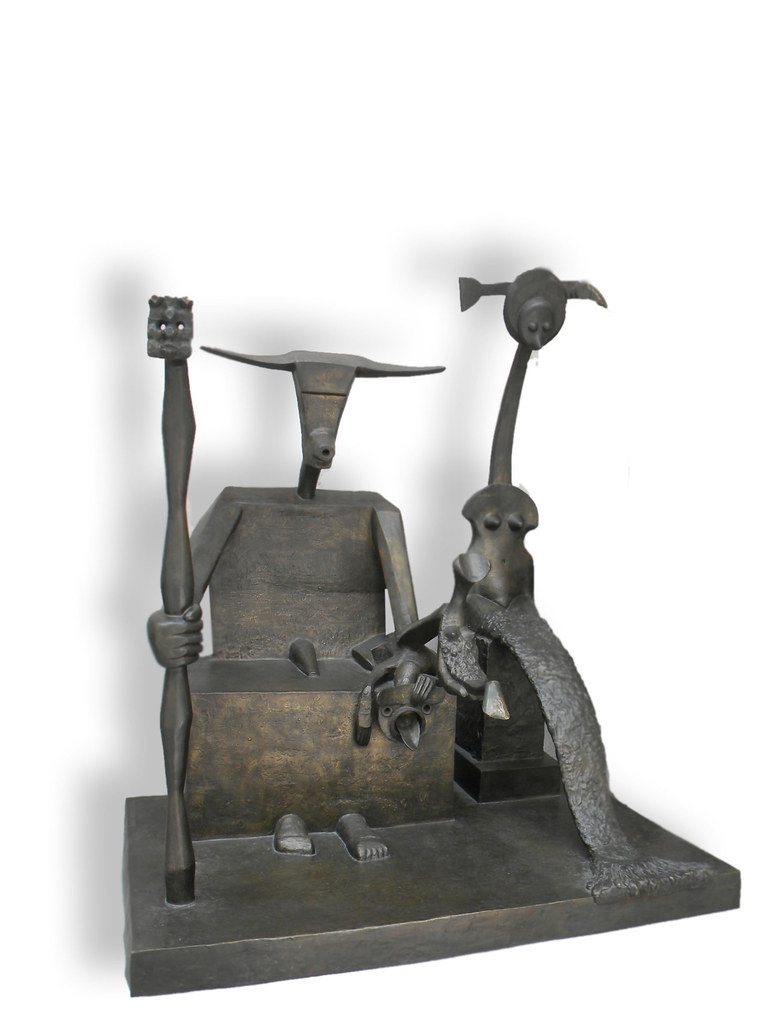
Max Ernst, Steinbock Capricorne, Detail a photo on Flickriver
Capricorn was a highly significant artwork within the career of Max Ernst, be it, as it was, the most famous sculpture that he ever produced. It is dated at 1947-1948 with many alterations and developments occurring afterwards into the 1960s. This design was originally produced in 1947, from a combination of cement and iron before a series of.

Capricorn Max Ernst Max ernst, Metaphysical art, National gallery of art
Capricorn, 1948-64 - by Max Ernst. Courtesy of www.Max-Ernst.com. Despite gaining American citizenship in 1945, Max Ernst returned to France with his fourth wife Dorothea Tanning - a Surrealist painter herself - in 1953, becoming a naturalized French citizen in 1958, During the summer of 1945, Ernst become interested in chess and in line with.

Capricorn by Max Ernst, 19481975 Scultura
In diesem Video spricht Kurator Raphaël Bouvier über eines der Schlüsselwerke in der Ausstellung Max Ernst in der Fondation Beyeler, die Skulptur "Steinbock".

Max Ernst sculpture Capricorn Max ernst, Metaphysical art, National gallery of art
Capricorn Max Ernst. Uploaded on Jul 19, 2013 by Magnus Östergren

Capricorn by Max Ernst, 1948 Stock Photo Alamy
Capricorn is the culmination of Max Ernst's sculptural work of the 1930s and 1940s, and the great monumental sculpture from his years in Sedona, Arizona. An original cement and scrap-iron version from 1947 served as a guardian outside a tiny concrete house that Ernst and his wife, artist Dorothea Tanning, built in Sedona in 1946.

Max Ernst Capricorn (1948 ) Max ernst, National gallery of art, Modern sculpture
Dorothea Tanning and Max Ernst with his sculpture, Capricorn. This photograph appeared in LIFE Magazine, January 21, 1952, p. 61 (in "Mite-size Art is Shown Actual Size: Max Ernst Gets $400 for Some of His Surreal 'Microbe' Pictures," pp. 58-62). In her own words.

Max Ernst (18911976), Capricorn, 1948, Bronze The Nelson Atkins Art Museum Max ernst, Art, Bronze
Beide Figuren sind Mischwesen aus Mensch und Tier und mit feiner Ironie gestaltet. Ernst schuf die Plastik 1948 zunächst in Zement für den Garten seines Hauses in Sedona (Arizona). Später wurden Bronzegüsse angefertigt. Als einer der innovativsten Collage-Künstler des 20. Jahrhunderts nahm er dabei zahlreiche gefundene Objekte durch.

Max Ernst (18911976) Capricorne 1948/1964, Gips (detail) Скульптура
on October 16, 2019. Max Ernst, fragments of Capricorn and other sculpture : Sedona, Arizona, 1948 : Arnold Herstand & Company. November 8-December 29, 1984. By Max Ernst. New York, NY: The Firm, 1984. Max Ernst was one of the most prolific and original artists of the 20th century. After marrying American artist Dorothea Tanning in 1946, the.

CAPRICORN, L’ENIGMA DI MAX ERNST ART FRICHE ZONE
Sculpture by Max Ernst. Disclaimer Images. We do our best to use images that are open source. If you feel we have used an image of yours inappropriately please let us know and we will fix it.

Max Ernst, Steinbock Capricorn Max Ernst, Brühl 1871 P… Flickr
Capricorn is one of artworks by Max Ernst. Artwork analysis, large resolution images, user comments, interesting facts and much more.

"Capricorn" 1948; cast 19631964 Max Ernst (18911976) . F… Flickr
Medium. Plaster. Dimensions. 94 x 80 x 51 in. (238.8 x 203.2 x 129.5 cm) Credit. The Museum of Contemporary Art, Los Angeles Gift of The Capricorn Trust and Mrs. Jimmy Ernst

Max Ernst "Capricorn" 1948/75, bronze 242.5 x 206.9 x 151 cm Beeldende kunst, Kunst, Sculpturen
Durant l'été 1947, pour le jardin de la maison qu'il construit en Arizona, à Sedona, Max Ernst entreprend sa sculpture la plus ambitieuse : Capricorne . Comme la plupart, sinon toutes ses sculptures, Capricorne est destiné à un lieu précis. Max Ernst l'installe comme un défi, comme une protection, face aux vastes paysages.

Capricorn by Max Ernst (1975) Max ernst, Sculpture installation, Sculpture
The Duomo of Monza often known in English as Monza Cathedral is the main religious building of Monza, near Milan, in northern Italy. Unlike most duomos it is.

Capricorn, 194864 by Max Ernst
Max Ernst, a German artist born in the late 1890's created "Capricorn" in 1948 using a Bronze casting system. The sculpture depicts a royal family, consisting of a man, a woman, and a small child (female). They man is sitting on what seems to be a throne, and is holding a massive cane.

Punto al Arte Capricornio de Max Ernst
In Capricorne Max Ernst uses found materials. The male figure's horns are a covered car bumper, his sceptre is crowned by a mask made of an egg carton and consists of stacked milk bottles. 1941-1953. 1941. Flees via Portugal to the United States, arriving in New York on July 14. Sees Leonora Carrington and André Breton again.

Capricorn, model 1948 Max Ernst (artist) German, 1891 19… Flickr
Arthur is a digital museum. More artworks by Max Ernst. See all 97